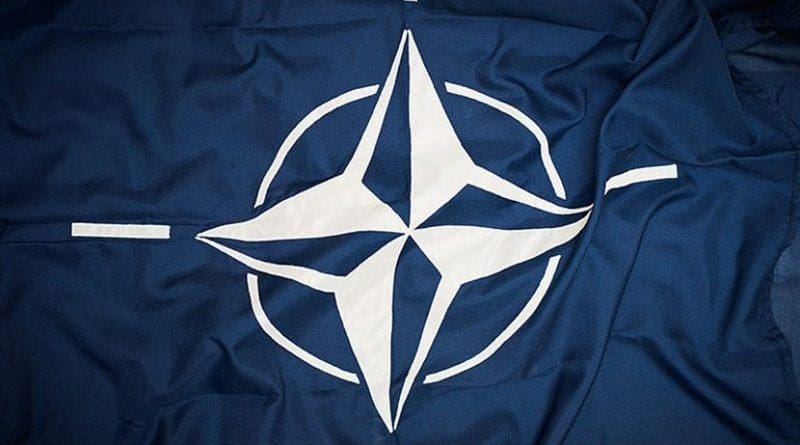NATO Leaders Meet For Summit Amid Trump’s Criticisms
By RFE RL
(RFE/RL) — NATO leaders were set to meet for a major summit that is shaping up to be one of the most uncertain, and tumultuous, gatherings of the North Atlantic alliance in years.
Looming over the Brussels gathering, which opens July 11, is U.S. President Donald Trump, who has repeatedly targeted alliance members for their levels of defense spending.
In a series of tweets and comments to reporters as he departed Washington, D.C., on July 10, Trump suggested its 29 members should “reimburse” the United States for its spending on the alliance, and repeated misleading statements about what and when members were to reach a 2 percent budget goal.
“Many countries in NATO, which we are expected to defend, are not only short of their current commitment of 2% (which is low), but are also delinquent for many years in payments that have not been made,” he said in a post to Twitter. “Will they reimburse the U.S.?”
The United States has “a lot of allies. But we cannot be taken advantage of. We’re being taken advantage of by the European Union,” Trump told reporters in Washington. U.S. spending on NATO “helps them more than it helps us.”
The 2 percent budget goal has long been a guideline for NATO member spending, until it was set in 2014 under President Barack Obama as a formal commitment.
NATO headquarters said the alliance is on track to increase its overall defense spending by 3.8 percent in 2018, and a total of eight members are expected to reach the 2 percent guideline by the end of the year.
Trump’s criticism has elicited pushback from NATO and European leaders in the past, and European Council President Donald Tusk chided him on July 10.
“I would like to address President Trump…who for a long time now has been criticizing Europe almost daily for in his view insufficient contributions to the common defense capabilities and for living off the U.S.,” Tusk told a news conference.
“Dear President Trump, America does not have and will not have a better ally than Europe.”
“Dear America, appreciate your allies — after all, you don’t have that many,” and also urged European countries to “spend more on your defense because everyone respects an ally that is well-prepared and equipped,” he said.
Trump’s criticism of the alliance has stood in stark contrast with his warm words for NATO’s main adversary, Russia.
Trump is set to meet Russian President Vladimir Putin on July 16, following the conclusion of the NATO meeting and a trip to Britain.
Asked by a reporter whether Putin was a “a friend or foe,” Trump responded: “I really can’t say right now.
“As far as I’m concerned, he’s a competitor,” he said. “I think that getting along with Russia, getting along with China, is a good thing.”
Of his meetings in Brussels and Britain and with Putin, he said: “Frankly, [the meeting with] Putin may be the easiest of them all — who would think? Who would think?”
Among the threats that Trump and White House officials have floated if NATO members don’t increase spending is reducing the U.S. military presence in Europe.
Some alliance members have privately voiced concern that Trump might also pull out of a major upcoming military exercises, including one, Trident Juncture, scheduled for October. Another set for November, called Anakonda, will be testing the alliance response in defending NATO member Poland.
In a call with reporters July 10, the U.S. ambassador to NATO tried to allay concerns among allies the United States was backing away from NATO, or from alliance treaty’s Article 5, which stipulates that an attack on one member is considered an attack on all.
Trump “is committed to Article 5 protection just as it is in the NATO charter,” Kay Bailey Hutchinson said. “He is committed to it. And I think that any indication that we’re walking away from the NATO charter and the commitments that we’ve made would be erroneous.
“We are committed to Article 5. We are committed to the NATO alliance. We believe that the NATO alliance strengthens America because we speak with 29 voices to a Russia that is one, to an Iran that is one, to a North Korea that is one. We are 29 and that strengthens us all,” she said.
In Congress, support for NATO remains strong, shared by both Republicans and Democrats.
Mitch McConnell, who holds wide influence as the Republican leader of the Senate, was asked July 10 about Trump’s threats to the alliance.
“I’m not worries about Trump pulling out of NATO,” he told reporters.

